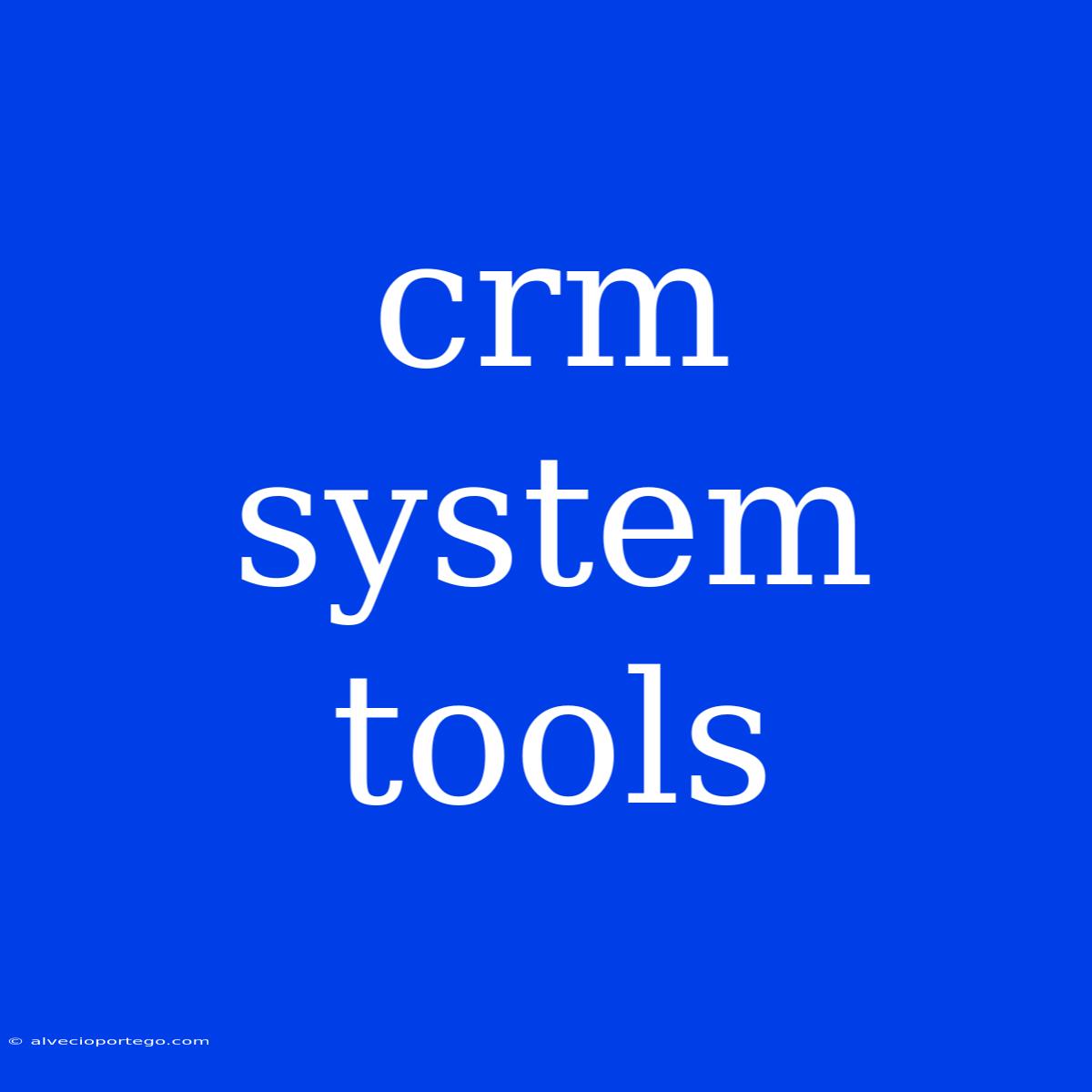CRM System Tools: Your Guide to Customer Relationship Management Success
Customer Relationship Management (CRM) is no longer a buzzword; it's a vital strategy for businesses of all sizes. A robust CRM system helps you manage interactions with customers and potential customers, ultimately leading to improved customer satisfaction and stronger relationships.
But how do you choose the right CRM tools for your business? This guide will break down the different types of CRM systems and tools available, helping you find the perfect fit.
What are CRM System Tools?
CRM system tools are software applications that help businesses manage and analyze customer data. This data can include everything from basic contact information to purchase history, website activity, and interactions with your support team.
Types of CRM System Tools:
1. On-Premise CRM: These systems are installed and run on your company's servers. This gives you greater control over your data and security but requires significant investment in hardware and maintenance.
2. Cloud-Based CRM: Cloud-based CRM solutions are hosted on third-party servers and accessed through a web browser. This is a cost-effective option with greater flexibility and scalability.
3. Open-Source CRM: These systems offer a free, customizable alternative. You can modify the code to tailor it to your specific needs, but you'll need in-house expertise to manage and maintain the software.
Key Features of CRM System Tools:
1. Contact Management: Centralized storage and management of customer information including name, address, phone number, email, and social media profiles.
2. Sales Automation: Tools that streamline the sales process, like lead generation, opportunity tracking, and automated follow-ups.
3. Marketing Automation: Automated marketing campaigns through email, social media, and other channels, based on customer behavior and preferences.
4. Customer Support & Service: Manage customer inquiries, track support tickets, and provide efficient customer service through live chat, email, and phone.
5. Reporting & Analytics: Generate insights from customer data to identify trends, measure performance, and make data-driven decisions.
Selecting the Right CRM System:
Here are some factors to consider when choosing a CRM system:
- Business Size and Industry: Your specific needs will vary depending on your business size and industry.
- Budget: Different CRM systems offer varying pricing structures, from free open-source options to expensive enterprise solutions.
- Features and Functionality: Prioritize the features that are most important for your business.
- Integration: Ensure the CRM system integrates with your existing software, like your email marketing platform, accounting software, or e-commerce store.
- Ease of Use: Choose a system that is user-friendly and easy to navigate.
Conclusion:
Implementing a CRM system is a significant investment, but it can deliver a high return on investment by improving customer satisfaction, streamlining business processes, and ultimately, driving revenue growth. By carefully considering your needs and exploring the different options available, you can find the right CRM system tools to power your business forward.

